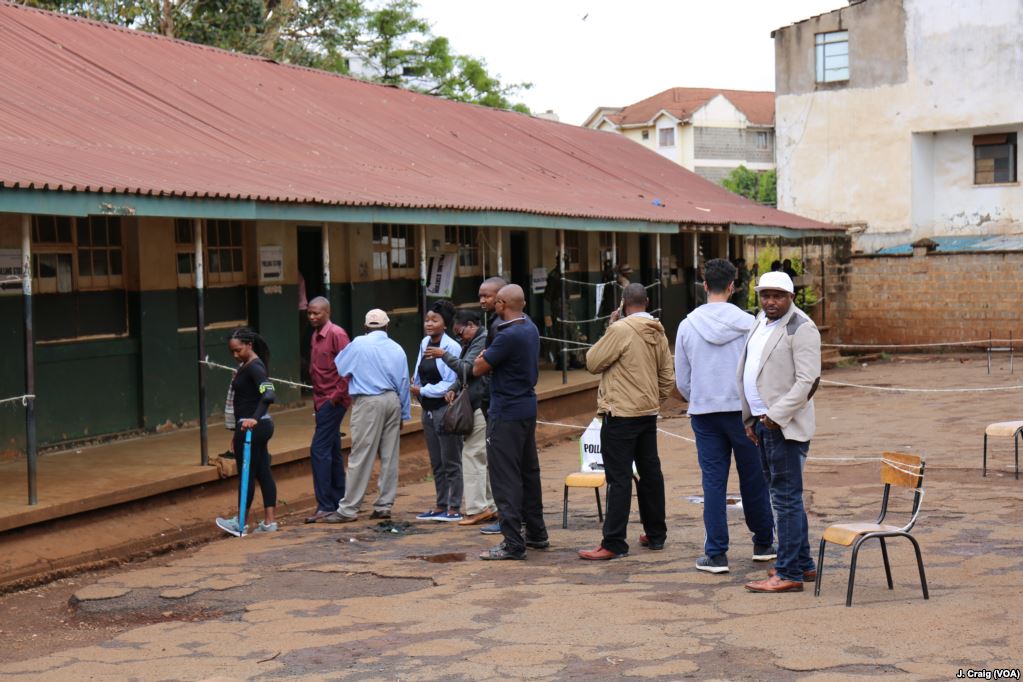Kenya was unsuccessful in holding a fresh election today, declaring it would postpone voting in areas of Western Kenya.
Chairman of the Independent Electoral and Boundaries Commission (IEBC) announced elections in Kisumu, Homabay, Siaya and Migori had been postponed due to protests, and would be held on Saturday once the security agencies had ‘restored order’.
Significant parts of the country were affected by the opposition boycott, protests and security operations. There was a dramatically lower turnout than in previous elections, with many areas reporting less than 40 percent compared to the 77 percent recorded on August 8th.
Low turnout and empty polling stations proved to be a widespread issue, with KYSY observer reporting low turnout in 42 percent of cases. Examples include:
- In Gimarakwa Primary PS, Stream 1, Vihiga, turnout was less than 1 percent.
- In Kilole Primary School PS, Stream 1, Kwale, turnout was less than 1 percent.
- In Hola Secondary School PS, Stream 1, Tana River, turnout was 12 percent.
- In Rukala Market PS, Busia, turnout was 26 percent.
In opposition strongholds there was little to no voting at all. Protesters set up roadblocks and barricaded entrances to polling stations. In some areas, IEBC staff were attacked and threatened. Citizens expressed fear they would be targeted according to their choice to vote or not.
Kura Yangu Sauti Yangu (KYSY) observers reported the following observations as of 2:00pm on October 26, 2017.
| Incident | Frequency of Incident |
| Low Turnout | 42% |
| Problems with the Kenya Integrated Electoral Management System (KIEMS) | 10% |
| No Voting | 9% |
| Observers obstructed or attacked | 6% |
| Violence perpetrated by citizens | 5% |
| Problems during opening of the polling stations | 4% |
| Registered voters do not appear in the KIEMS or in the copy register | 3% |
Fear of another flawed election, and the opposition call for a boycott had a fatal impact on public confidence. Heavy rains compounded the effect of the boycott. Low turnout affected the following places: Nairobi, Garissa, Isiolo, Nakuru, West Pokot, Kilifi, Malindi, Embu, Nandi, Trans Nzoia, Mrsabit, Kisii, Baringo, Samburu, Tana River, Muranga, Mombasa. Taita Taveta, Kwale, Maralal, Lamu, Bungoma, and Kajiado.
In some areas, there was a total no-vote. Polling stations have been locked, barricaded or completely deserted. Local election observers met challenges in all parts of the country. In government strongholds, some election observers were refused entrance, or intimidated. In opposition areas, boycotters refused to allow vehicles near the polling stations, preventing observers from working. In Nyanza and Coast, access to polling stations was blocked by groups of youth, who set fires and barricaded roads. This was recorded in locations such as Kisumu, Busia, Vihiga, Mombasa, and Siaya.
It was also reported in areas such as Bangladesh in Mombasa, and Migori in Nyanza
KYSY observers detailed cases of brutality by security forces, as well as cases where IEBC staff were prevented from carrying out their duties, including an IEBC officials who was stoned. In Kwanza Constituency in Trans Nzoia, gangs of youth were witnessed threating people against voting and issuing warnings they would be harmed at night if they did so.
KYSY observers also noted that agents were absent in some polling stations. Where they were present, they were usually Jubilee Party representatives. In Kiambu, observers said there were polling stations where IEBC was ‘running the show alone’.
It is of no surprise that today’s fresh election failed to meet the standards demanded by the Supreme Court. Demands for minimum electoral reforms, administrative transparency and political dialogue have been trampled in the rush to hold the fresh election, despite the constitutional and political alternatives available to meet the standards necessary.
KYSY believes the election is not credible or viable, and urges political leaders and stakeholders to engage in political dialogue to urgently resolve the national crisis.
About KYSY
The KYSY coalition, a citizen movement for credible elections spearheaded by like-minded civil society organisations, has established an Election Centre (EC) at the Kenya Human Rights Commission to receive and process member organizations’ election observations.
26th October 2017
 Kenyans for Peace with Truth and Justice (KPTJ)
Kenyans for Peace with Truth and Justice (KPTJ)
